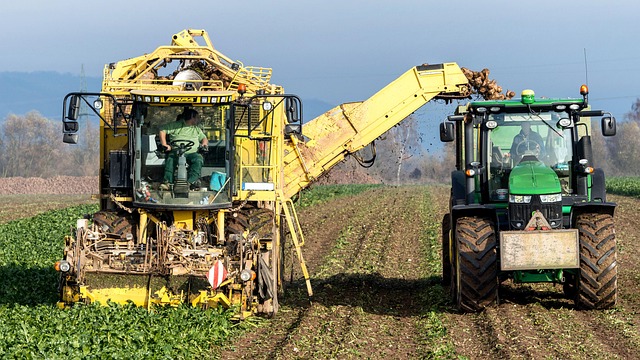Sustainable agriculture represents more than just a trend; it is a fundamental shift in how we approach food production and land management. As stewards of the planet, we have a responsibility to minimize our ecological footprint while ensuring that we can feed a growing global population. The cycle of sustainable agriculture not only addresses immediate agricultural needs but also focuses on creating a harmonious relationship with nature.
At the heart of this cycle is sustainable development, which emphasizes meeting our current food requirements without compromising the ability of future generations to meet theirs. This delicate balance necessitates an understanding of how our farming practices intersect with the environment. By implementing sustainable agriculture techniques, we can reduce soil erosion, improve water quality, and enhance biodiversity, all while maximizing the yield of crops through ecologically sensitive methods.
Embracing green technologies is a pivotal component of sustainable agriculture. Innovations such as precision farming, vertical gardens, and integrated pest management are revolutionizing how we cultivate our crops. These technologies not only increase efficiency but also reduce the need for harmful chemicals, which can devastate local ecosystems. By utilizing renewable energy sources and resources, farmers can cultivate land while leaving a lighter ecological footprint.
Moreover, the pursuit of carbon neutrality is becoming increasingly vital. Sustainable agriculture seeks to not just reduce emissions on the farm but to create systems that can potentially sequester carbon. Practices like agroforestry, cover cropping, and regenerative agriculture actively restore soil health, leading to enhanced carbon capture. The result is a resilient agricultural system capable of withstanding the impacts of climate change while playing an active role in climate mitigation.
Transitioning to sustainable agriculture is not merely a personal choice; it is a collective obligation towards our planet. By supporting local farmers who practice eco-friendly methods, promoting organic practices, and advocating for policies that prioritize sustainability, we can reinforce the cycle of sustainable agriculture. This shift not only fosters healthy ecosystems but also encourages communities to come together in the fight against climate change.
As consumers, we have the power to influence farming practices through our purchasing decisions. Choosing organic produce, supporting cooperative farmer initiatives, and engaging in community-supported agriculture can reinforce the principles of sustainable agriculture. Every small change in our consumer habits can contribute significantly to the larger movement of reducing our ecological footprint.
Thus, the cycle of sustainable agriculture is an invitation for each one of us to connect with the land and the food systems that nourish us. By understanding and embracing sustainable development and responsible practices, we can create a greener, more equitable world. This transformative journey promises not just healthier food but a revitalized relationship with the Earth, ultimately crafting a legacy of sustainability for generations to come.




